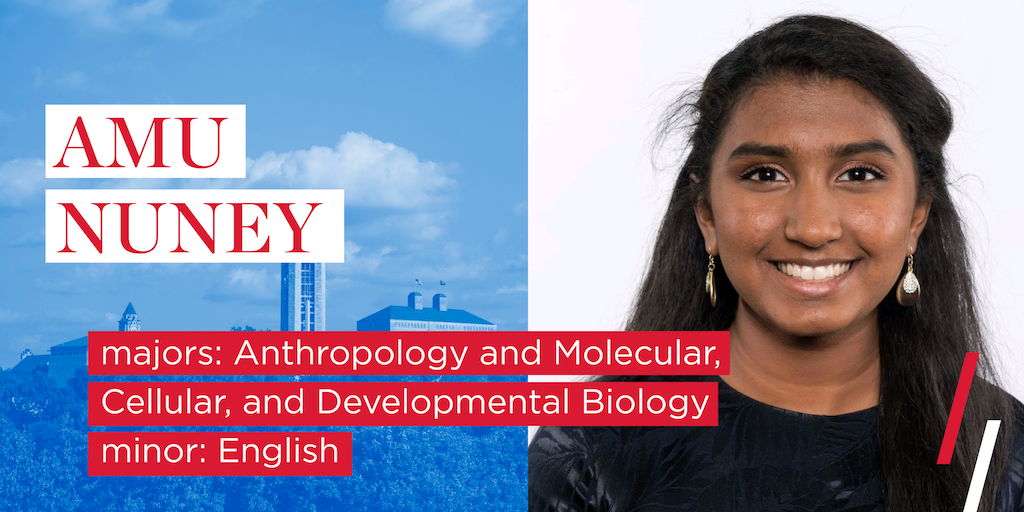
Amu Nuney is interested in exploring humanity from all angles —where we come from, how we communicate with one another and what makes us who we are. With majors in anthropology and molecular, cellular and developmental biology and a minor in English, the KU senior is seeking answers to those very questions from multiple disciplines. In the process, she’s discovering connections between culture, language and our biological make-up. And gaining a more holistic, nuanced view on what it means to be a human.
Where are you from? And why did you decide to come to KU?
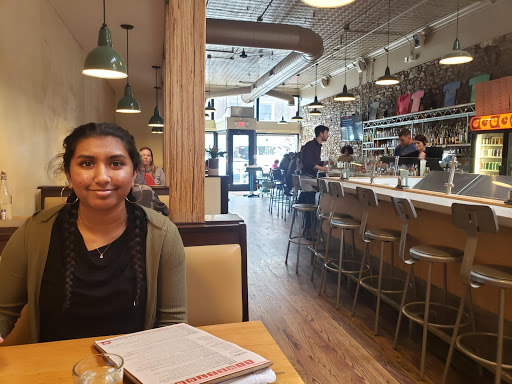
Overland Park, KS. I decided to come to KU because I felt drawn to the strong sense of community and I knew how supportive peers and faculty are. Overall, KU seemed like a friendly and hospitable environment for me to explore my interests throughout my college years.
Why did you choose your majors and minor?
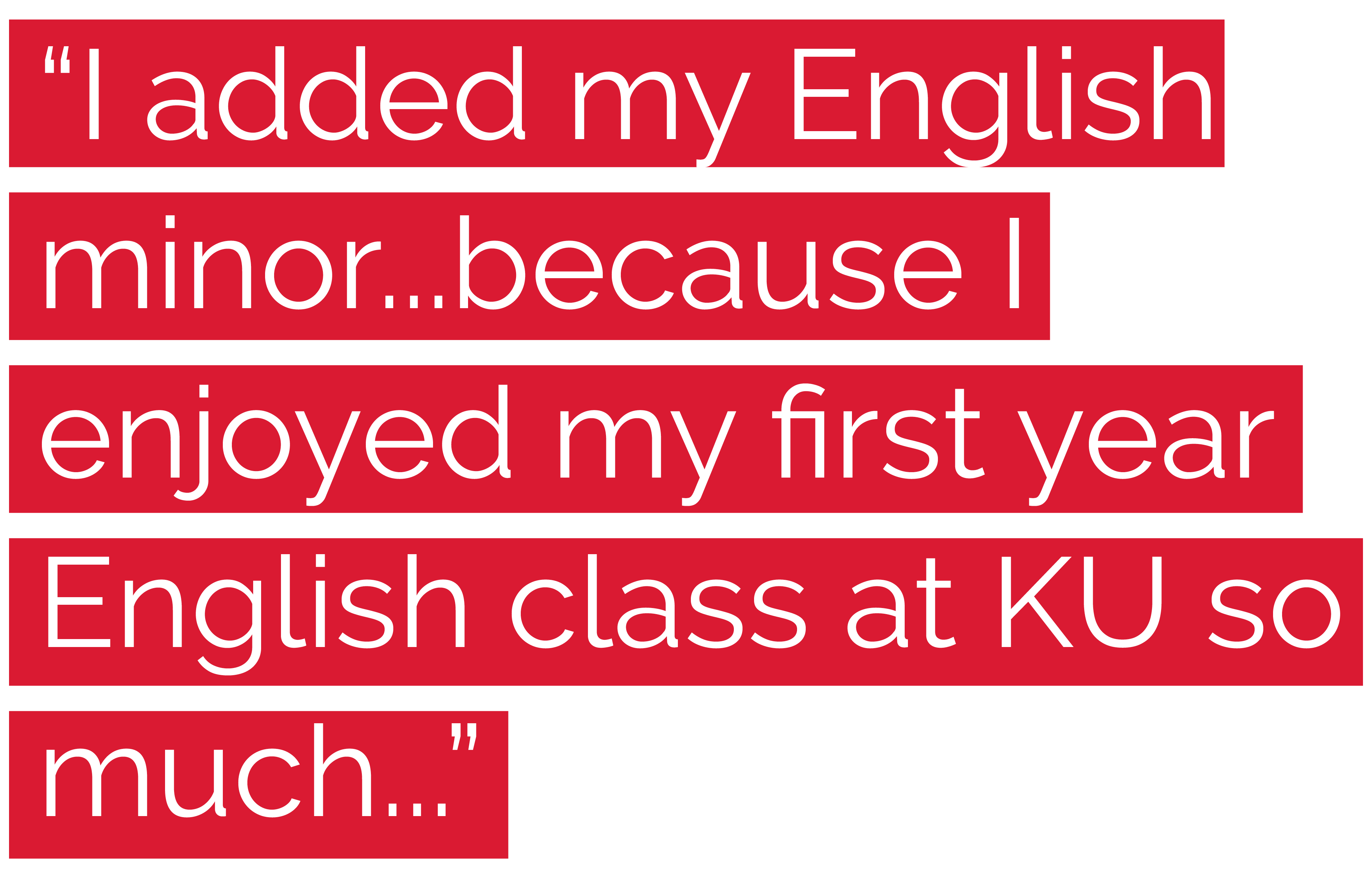
I have always been drawn to biology since high school; I think it’s one of those subjects that helps me focus on the details and not get carried away by larger ideas and it has really helped me develop sound scientific skills especially in inquiry. Anthropology has helped me fulfill this lifelong desire I had to better understand human beings and what aspects of culture, language, and biology affect who we are. Coming into KU, I knew I wanted to combine biology and anthropology somehow, and I started off as a Human Biology major with an emphasis in Anthropology. I switched to a double major because I realized that I wanted to learn each subject in its own right and then decide how to integrate them myself as I progressed through my degrees. I added my English minor farther into my freshman year because I enjoyed my first year English class at KU so much (thank you Dr. Rowland) and I wanted to be able to discuss literature in an academic setting for as long as I could. My two majors and minor have worked in tandem with each other multiple times – sometimes I would be reading the same theorist for anthropology and English at the same time. Biology stands out a bit because of how cut-and-dry STEM it is, but I think that the discipline has surprising connections to other subjects. Learning biology alongside anthropology and English has helped me understand how scientific information is acquired, how it’s disseminated, and how alternate modes of understanding the world are not incompatible with scientific thought. It’s given me a much more nuanced perspective on what science and truth mean to human beings.
What is the benefit of being in the KU College alongside students studying sciences, arts and humanities?
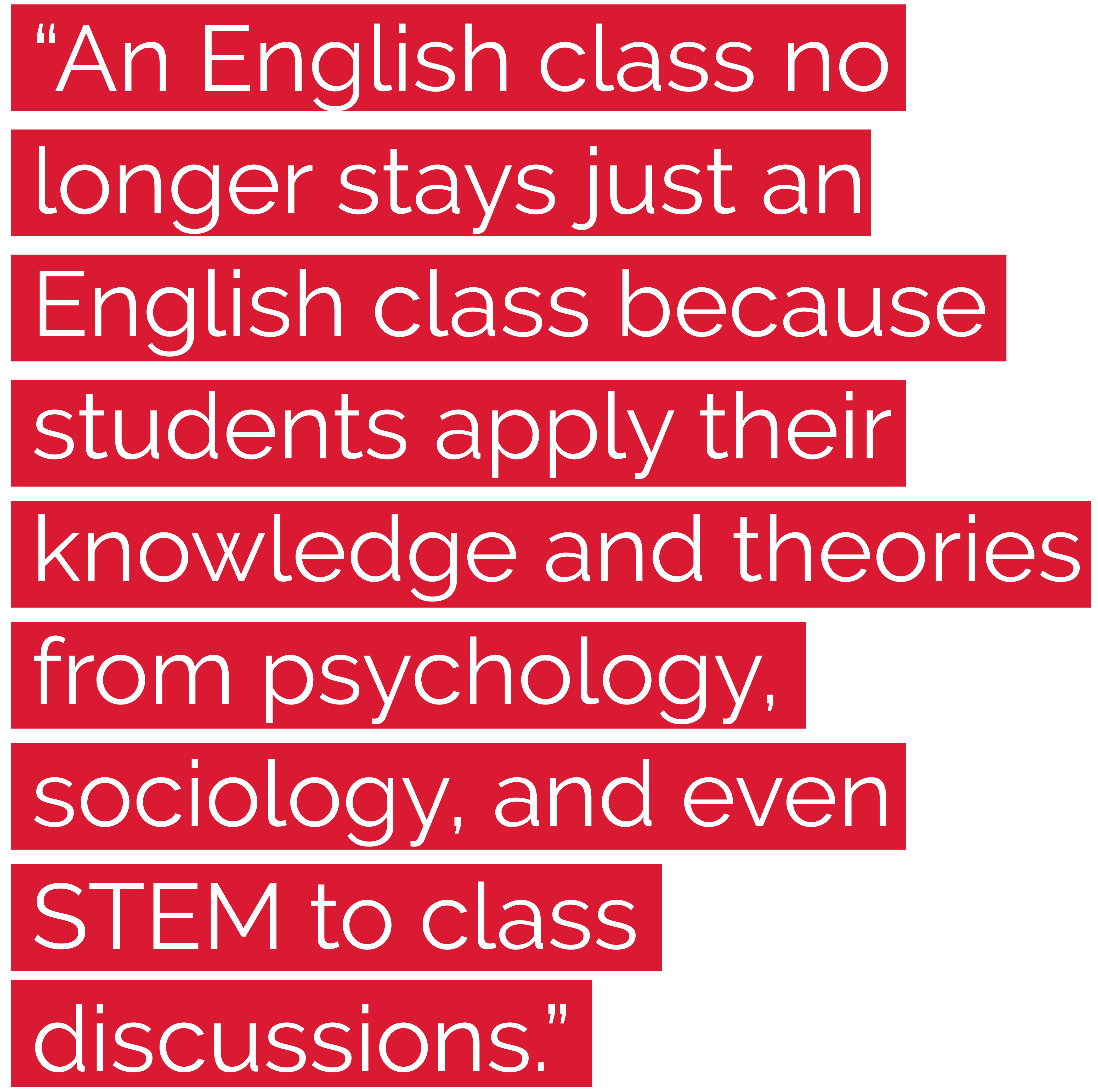
Being in the KU College allowed me to interact with a large variety of students, all of whom study a multitude of different disciplines within the College. This allowed class discussions to be more colorful and complex because each student has their own perspective to bring to class. An English class no longer stays just an English class because students apply their knowledge and theories from psychology, sociology, and even STEM to class discussions.
What has been your favorite class at KU?
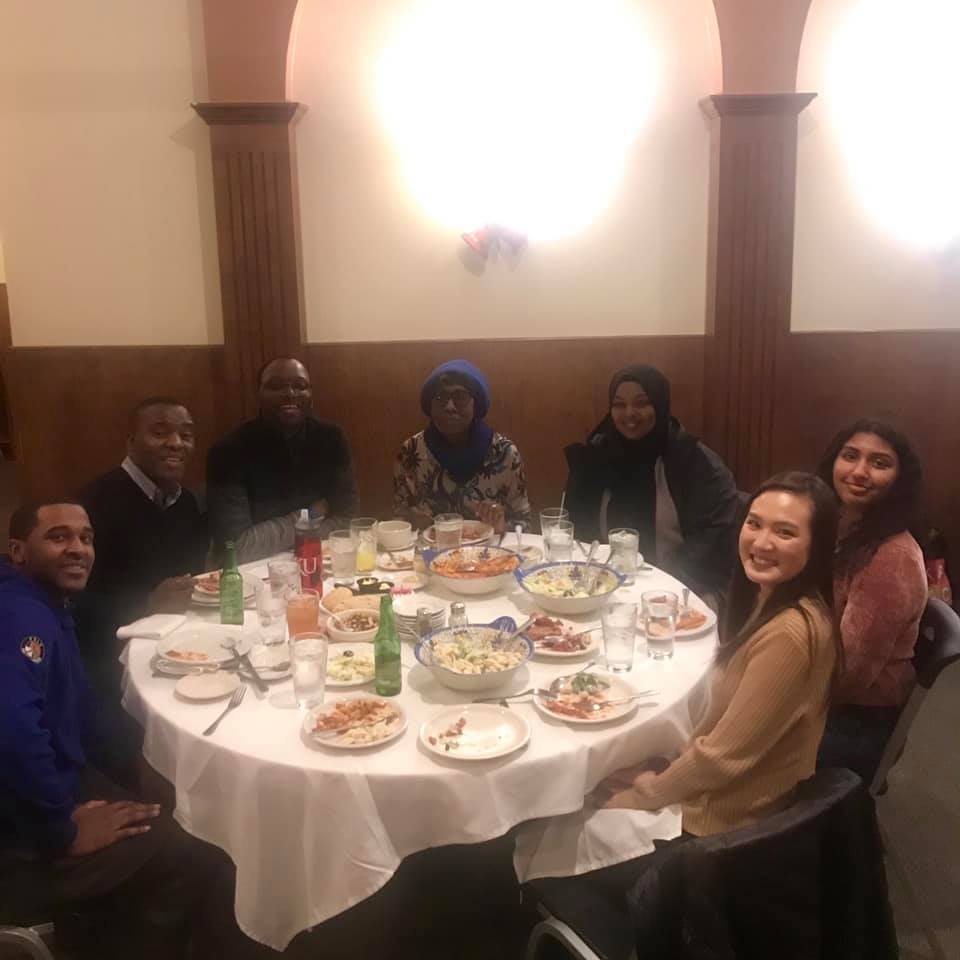
This is a tough question, but I would have to say that it’s a three-way tie between ENGL 383 Cultural Rhetorics with Dr. Prasad, ANTH 484 Magic, Science, and Religion with Dr. Hannoum, and BIOL 503 Immunology with Dr. Benedict. I really loved my Cultural Rhetorics class because it challenged me more than any other English class had before. I was forced to look at how rhetoric informs culture and how the popular media that we consume often reflects and dictates cultural values and narratives. Magic, Science, and Religion was an eye-opening course that helped me understand how different modes of making sense of the world are related and often overlap. Immunology with Dr. Benedict was one of the first upper level biology courses I took, and his instruction was so refreshing because he frequently made reference to the relevance of the material we were learning and it really helped biology come to life for me.
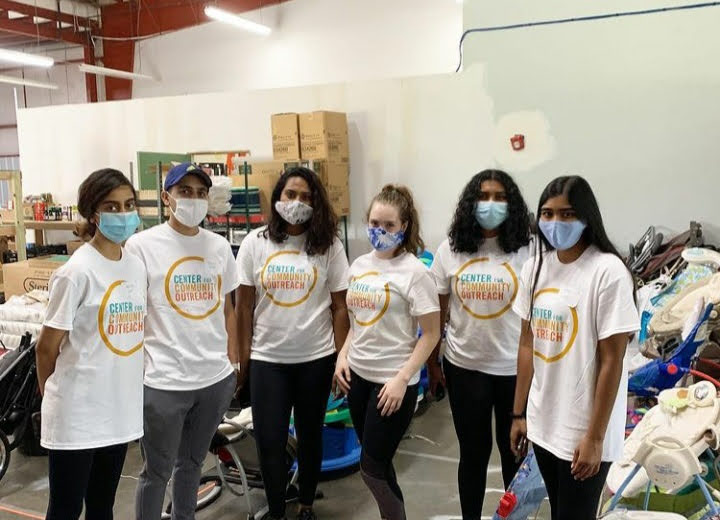
Give a shout-out to a professor, mentor, advisor, or someone at KU who has helped you.
I want to thank Ed Healy, Dr. Ann Rowland, Dr. Katie Rhine, Christina Holt at the Center for Community Health and Development, and Dr. Michele Pritchard at KUMC for being mentors and advisors throughout my college journey. I have learned so much from them and I will be forever grateful.
What would you tell your freshman self?
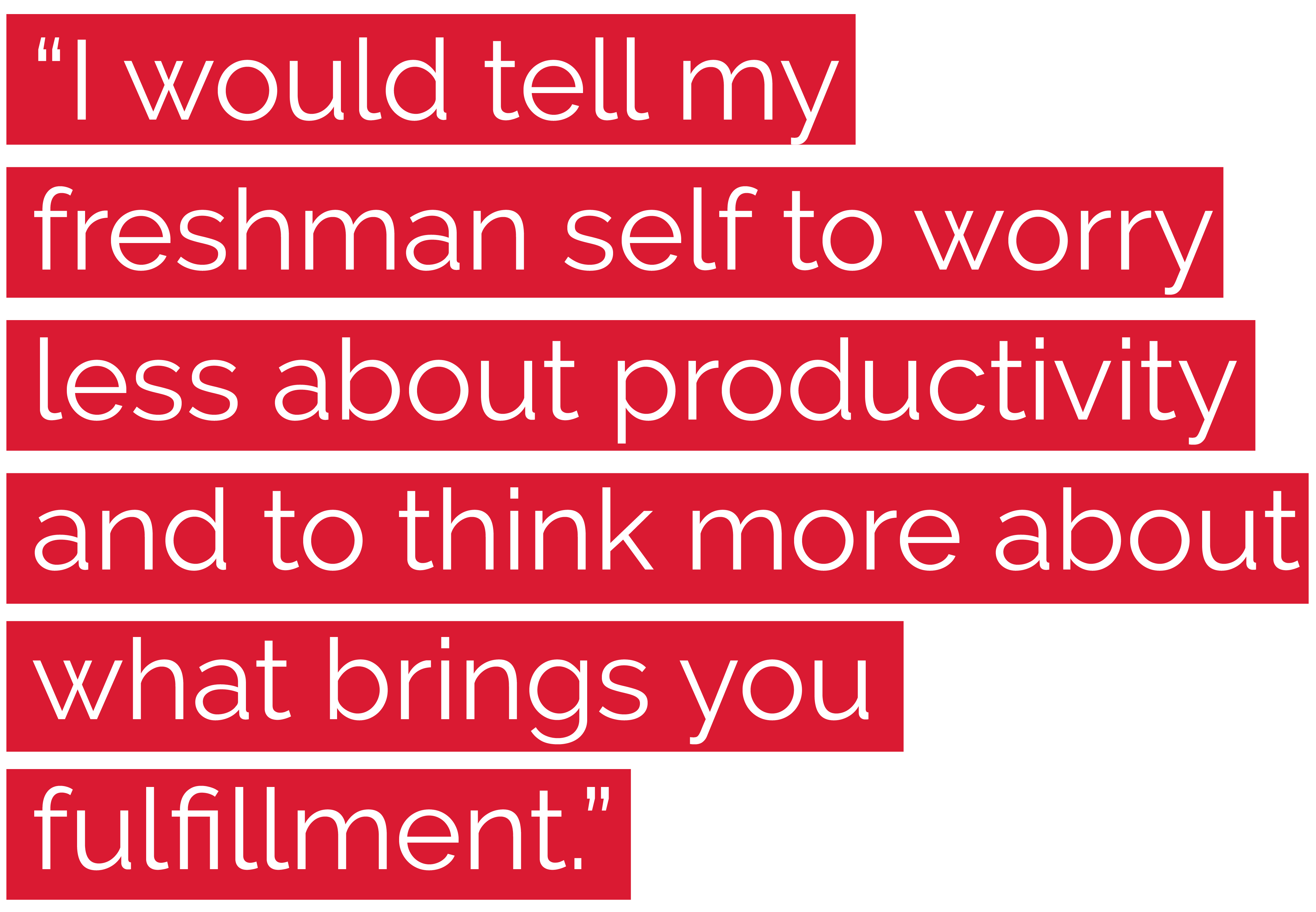
I would tell my freshman self to worry less about productivity and to think more about what brings you fulfillment. I spent a lot of time in my first couple of years of college worrying entirely too much about being ambitious enough to achieve my goals, but the lesson I learned later is that ambition’s most meaningful form is expressed through acts of service to the community. I realized that ambition can be a way to become informed and capable enough to use my knowledge in a direct way that impacts others. I found that through my work with HEAL KU, the Center for Community Health and Development, and other initiatives on campus. Finding things that make you feel motivated makes it much easier to have a clear vision for who you want to be and what you want to contribute to your community. I would also tell my freshman self to stop messing up her sleep schedule, she will regret it!
What do you want to do when you graduate?
I am starting med school at the end of the summer and I also hope to get an MPH along with my MD. I also want to continue to participate in research and community service projects. I also hope to get through my entire summer reading list before my white coat ceremony!
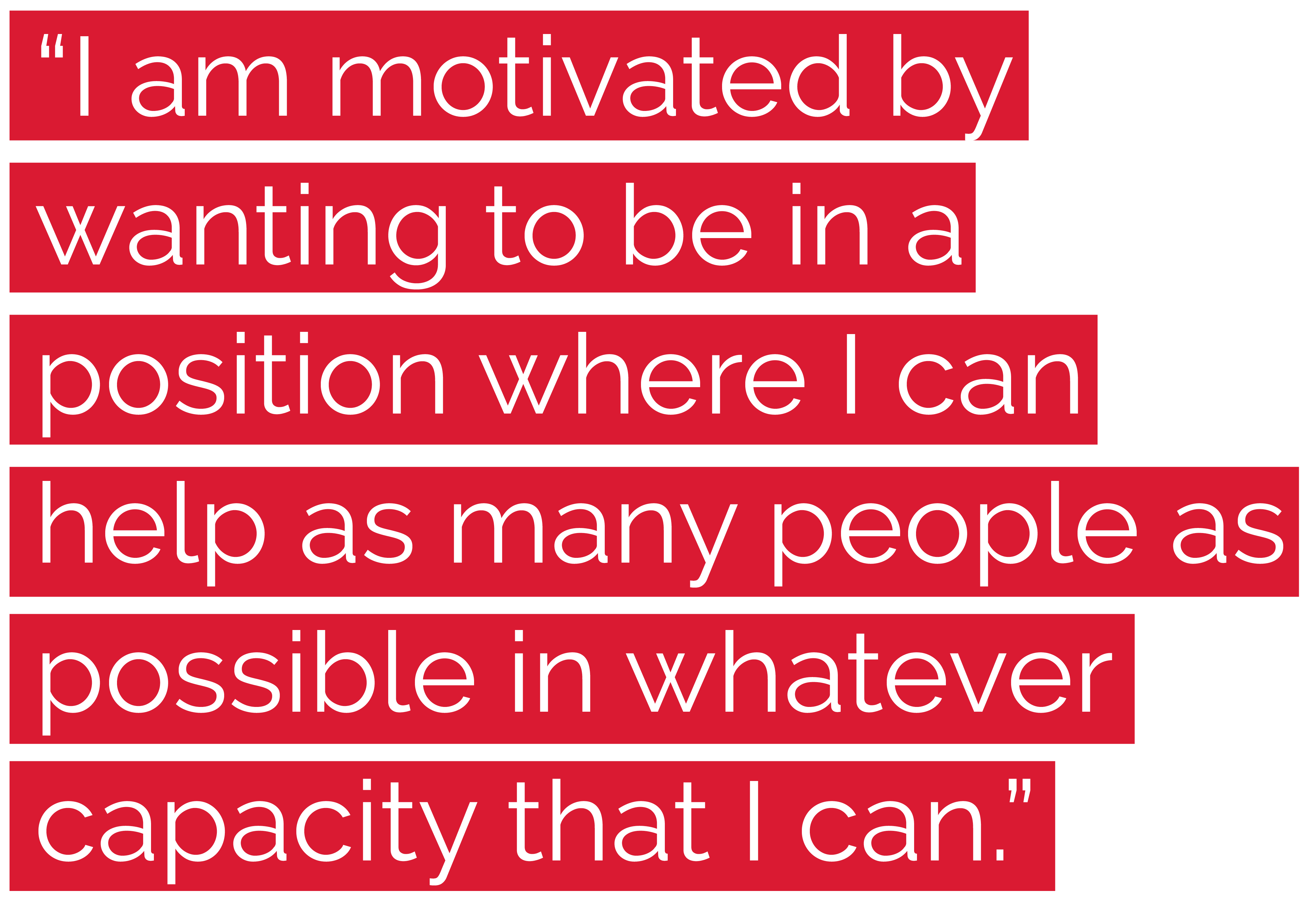
What motivates you?
I am motivated by wanting to be in a position where I can help as many people as possible in whatever capacity that I can. This includes community, family, and friends. I also am motivated by a desire to bring something new to the field I am going into: medicine. I think there’s a large and increasing gap between the general public and healthcare providers and I hope to be a part of the solution to bridge that gap so we can live in healthier communities with a higher level of social trust.
Meet more of our students. For more information, explore the Department of Anthropology, the Undergraduate Biology Program, and the Department of English at the University of Kansas.